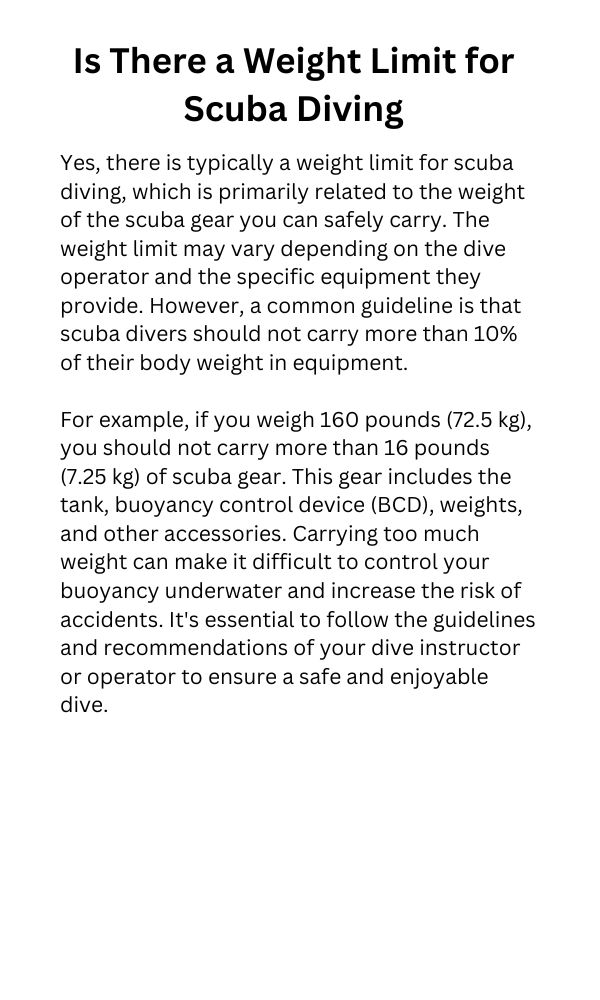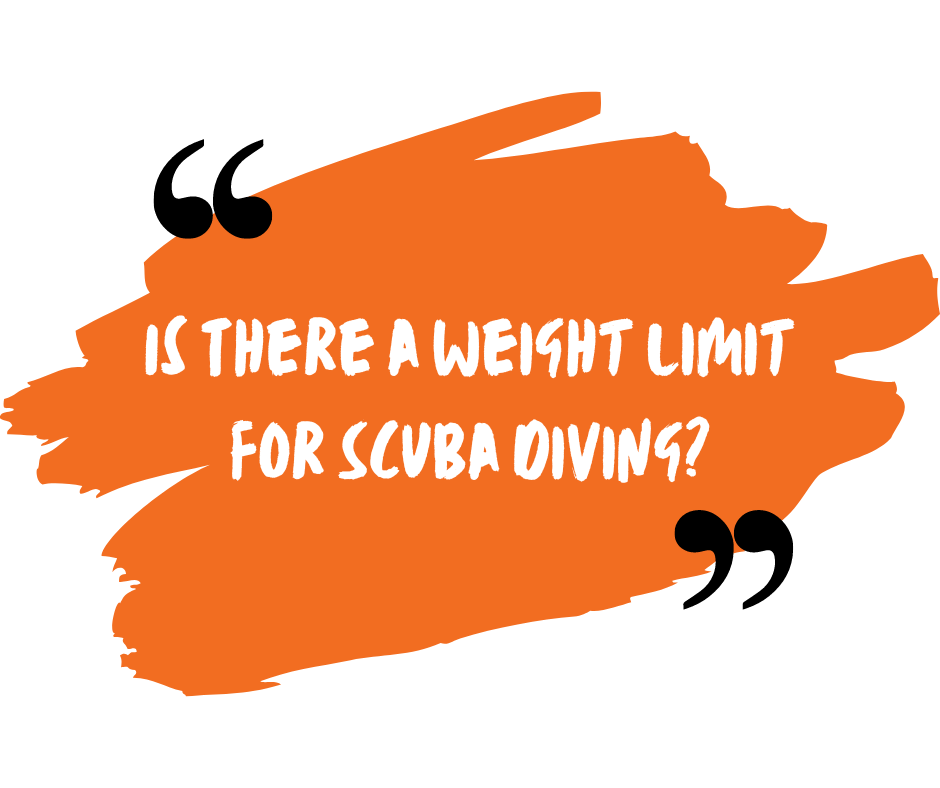Yes, there is typically a weight limit for scuba diving, which is primarily related to the weight of the scuba gear you can safely carry. The weight limit may vary depending on the dive operator and the specific equipment they provide. However, a common guideline is that scuba divers should not carry more than 10% of their body weight in equipment.
Scuba diving is a captivating and immersive activity that allows individuals to explore the underwater world. However, many divers, especially those new to the sport, may wonder if there is a weight limit for scuba diving. In this article, we will address the concept of weight limits in scuba diving, how they are determined, and the crucial factors that influence safe weight considerations for divers.
Weight Considerations in Scuba Diving
Understanding Buoyancy
Buoyancy control is a fundamental skill in scuba diving. Divers use their buoyancy control device (BCD) to achieve neutral buoyancy, which means they are neither sinking nor rising in the water. Achieving neutral buoyancy is essential for maintaining stability and conserving energy while diving.
Weight for Neutral Buoyancy
The weight a diver needs to achieve neutral buoyancy varies from person to person and depends on several factors, including:
- Body Weight: Heavier individuals generally require more weight to achieve neutral buoyancy.
- Body Composition: A person’s body fat and muscle distribution can influence buoyancy needs.
- Dive Equipment: The type and amount of dive equipment, such as tanks, wetsuits, and other accessories, impact buoyancy.
- Exposure Protection: Divers wearing thicker wetsuits or drysuits may require additional weight.
- Salinity and Freshwater: Water salinity affects buoyancy. Saltwater is denser, requiring less weight than freshwater.
Calculating the Right Amount of Weight
To determine the appropriate amount of weight needed for neutral buoyancy, divers often follow these steps:
- Pre-Dive Weight Check: Before the dive, divers conduct a pre-dive weight check. They do this by entering the water with their dive gear on and a nearly empty BCD. They then take a normal breath, let out all the air from their BCD, and check if they float at eye level with a relaxed breath. If they sink, additional weight may be needed.
- Gradual Adjustment: Divers add or remove small weight increments until they achieve neutral buoyancy. This process may require some trial and error to find the perfect balance.
- Safety Margin: Divers typically carry a small amount of extra weight (known as a “safety weight”) to ensure they can descend if needed, even if they have more air in their BCD than usual.
Factors Affecting Weight Limits
While there is no strict weight limit for scuba diving, certain factors can influence a diver’s ability to safely engage in the activity:
- Fitness: A diver’s overall fitness level can affect their buoyancy control and ability to carry and manage dive equipment.
- Medical Conditions: Specific medical conditions may impact a person’s suitability for scuba diving, even if weight requirements are met.
- Equipment Handling: Proper handling and management of dive equipment, including weights, is essential to ensure safety.
- Training and Experience: Divers should be trained and experienced in buoyancy control and weight management to prevent accidents.

FAQ
Is there a maximum weight limit for scuba gear?
While there is no fixed maximum weight limit for scuba gear, divers should aim to carry only the weight necessary for their buoyancy control and equipment needs. Carrying excessive weight can lead to difficulty in buoyancy control and potential safety issues.
Can overweight or obese individuals scuba dive?
Overweight or obese individuals can scuba dive, but their buoyancy and equipment needs may differ from those of individuals with lower body fat. It’s essential to work with a dive instructor or professional to determine the right equipment and weight requirements.
Can divers with less body fat carry less weight?
Divers with lower body fat may need to carry less weight to achieve neutral buoyancy. However, the weight requirements should always be determined through a pre-dive weight check to ensure proper buoyancy control.
In conclusion, there is no specific weight limit for scuba diving, but buoyancy control is a crucial skill for divers to master. Achieving neutral buoyancy requires careful consideration of body weight, body composition, dive equipment, and other factors. Divers should work with professionals to ensure they carry the appropriate amount of weight for their safety and enjoyment while exploring the underwater world.
